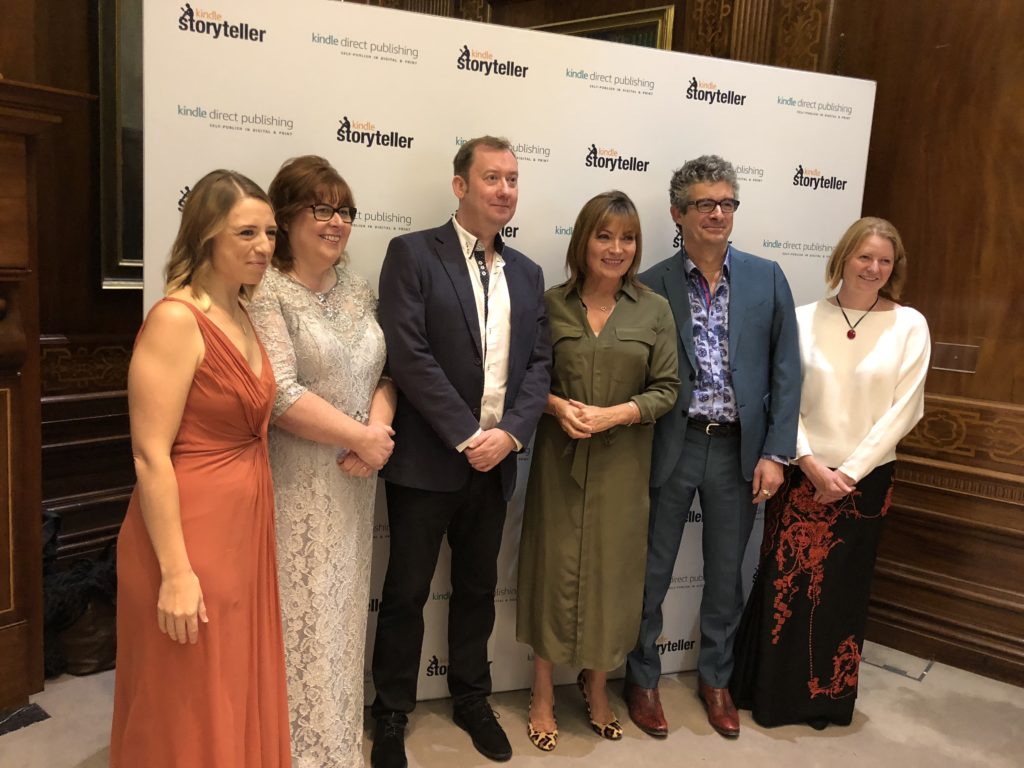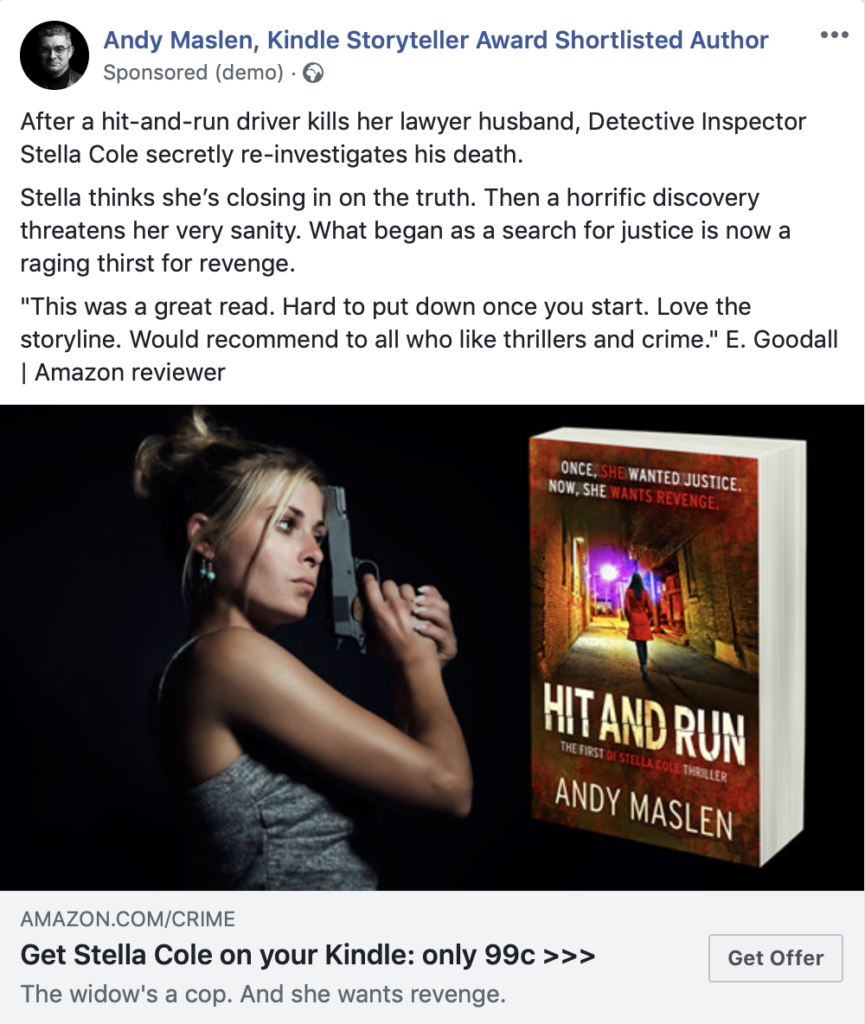
Here’s what to spend money on as an investment in your author career
I chose the title of this article carefully. (Well, I am a writer!) Because there are two kinds of indie authors.
The first kind simply needs to be able to say, ‘‘I published a book.’’ They can send their friends and family to the page on Amazon where their magnum opus resides and voilá, job done.
The second kind — of which I am one, and I think you may be — wants to sell their books. To lots of people. And that requires spending money. But let’s agree not to talk about spending money. That’s what you do when you buy a coffee or a pair of socks. Or even a new car.
What we’re doing is investing money. In our book. In our brand. In our future success. Because as indie authors, you and I are running small businesses as well as writing books. We run small publishing businesses.
How trad publishers invest in books
Here’s a short but non-exhaustive list of what publishers invest in when they take on a new author. (I published five nonfiction books with traditional business publishers.)
- Commissioning, development and copy editors
- Proofreaders
- Production managers
- Cover designers
- Indexers
- Ebook production
- Audiobook production
- Salespeople
- Advertising
- Attending book fairs
- Publicists
- Giveaways (swag)
- Newsletters
- Email blasts
- Websites
You won’t need to do all, or even most, of those tasks, but you can’t expect to just write your story, lean back and have the world beat a path to your Amazon page.
Investing part 1 – producing your book
Let’s assume you want to try the indie author route. As far as the product — your book — goes, as an artefact, I think it’s essential to make it as good as anything a traditional publishing house will put out. Historically, they have had the funds to pay for developmental editors (called development editors in the U.K.) as well as line or copy editors as well as proofreaders.
Like many indie authors, I’ve tended to shy away from the additional investment required to have a dev editor assess my manuscript for broad thematic issues like character and plot dynamics. But now, using Marlowe, the new artificial intelligence from Authors A.I., I get that invaluable service for a fraction of the usual fee.
In total, I spend roughly £1,400/$1,800 U.S. on getting a 100,000-word manuscript ready for publication. In addition to using Marlowe, I work with two separate people, a copy editor and a proofreader.
Then there’s the formatting. Here you have two options. You can send your Word doc off to a formatting house. Most charge a reasonable fee. I last paid around £105/$140 for Kindle, Apple, generic epub and print formats.
I do it myself now, as a lot of others do, using Vellum, surely one of the simplest, most user-friendly and delightful pieces of software ever written. It’s yours for a one-time fee of around £200/$260.
People do judge a book by its cover. You might have superb design skills and be able to do your own. I’m not that person. So I invest around £550/$720 on a professionally designed cover. That includes some graphic assets I can use in other places, including Twitter and Facebook banners, a non-text version of the cover, a 3D mockup and another I can use in my email signature.
There are lots of quality book cover designers out there. Join a Facebook group for authors and ask around. (Oh, and one very important point, make sure the design looks good at thumbnail size. Your designer should know this but put it in the brief anyway.)
Don’t overlook the audiobook version
I’d say doing an audiobook is optional, not essential, but lots of folk enjoy books this way and will ask you for audio formats. I use acx.com for mine and I pay my narrators a fixed fee for production. They charge between £200/$250 and £250/$300 per finished hour , which works out to around £2,300/$3,000 for my books. Shorter books would be cheaper, obviously. And you may be able to find a less expensive narrator.
You can also opt for a royalty-sharing arrangement, in which you split the 40% author’s royalty 50/50 with your narrator. No upfront cost, less money on the backend.
Now you have a finished product. Professionally edited and proofread, attractively formatted for ebook, print and audio, and with a quality cover that’s ready to shine online.
Which is all very well and good. But now what? Even if you ask someone who works at Kindle Publishing, and I have, they can’t give you an exact number for the amount of books they host. But it runs somewhere north of 8 million titles. Which means you need one thing.
Visibility.
Investing part 2 – telling readers about your book
Some folk in e-publishing call it discoverability. You need to do something to get your book in front of potential readers. And that means advertising.
If I had to make a choice between editing, proofreading, formatting and cover-designing myself and spending my cash on ads, or flipping that round and investing everything on product quality and doing no advertising, I’d go for the former. Why?
Because some readers are sufficiently tolerant of the odd typo or plot hole that they’ll buy and enjoy your book regardless and then buy more. But a superbly edited book nobody can find is like a tree falling in an empty forest. Nobody hears it. Nobody cares. Worst of all, nobody buys.
How much should you invest in advertising? I’d say as much as you can. Ads should be profitable so there is no upper limit. You spend yesterday’s revenues on today’s advertising, keeping a bit back for your pocket. As long as everything works, you keep upping your ad spend, pocketing a little bit more each day.
I mainly use Facebook ads and start every ad campaign at $5 a day. If you’ve got enough cash for a trip to Starbucks, you have enough to advertise.

I write in series, so rather than allocating an advertising budget to each new book, I spend on selling the first titles in each series, relying on read-through for the eventual profits. My weekly ad spend is somewhere near £2,000/$2,600.
What else have I invested in? I have an author website. Essential. They don’t have to be expensive. Plenty of authors do their own. I would rather spend my time writing or working on ads.so I pay someone to do mine. (I am also an inveterate tinkerer and over the years have eventually ruined every website I’ve ever commissioned.)
I use Mailerlite for my email marketing: £21/$27 a month. Shopify for a little add-in to my Facebook page to sell merchandise: £7/$9 a month.
I also got some business cards printed up, using a web-based service. I use Moo.com, though there are many others. These are great, as I can hand one to anyone who asks, ‘‘So, what do you do for a living?’’ Inexpensive, too, about £50/$65 for 100.
Possibly the single best investment I made in my career, apart from becoming a founding author of Authors A.I., was Mark Dawson’s Self Publishing Formula course. The cost then was around £500/$650. I have made that back many times over.
What does all this work out to?
Per book: £4,500/$5,850-£5,000/$6,500.
Per year: about £100,000/$130,000. Admittedly, my spend was nowhere near this amount when I was starting out.
Although these are not insignificant figures, they are manageable, because everything is paid for out of cash flow. I did not borrow a penny to kick off my indie publishing business. And I keep an eagle-eye on the return on investment (ROI) from my advertising. I know exactly what I can afford to acquire a new reader. If an ad can’t deliver against that single number, I review, adapt or kill it within days.
To close, I want to reiterate the point I made at the beginning. I do not consider what I describe here as spending. I consider it as investing. I apply investment metrics and investment thinking to every penny.
Perhaps it’s time to invest in your author career. Post a question below — I’d be glad to help.







Andy, I think encouraging authors to think of these costs as investments in their writing career is the right way to look at it. It’s a long game.